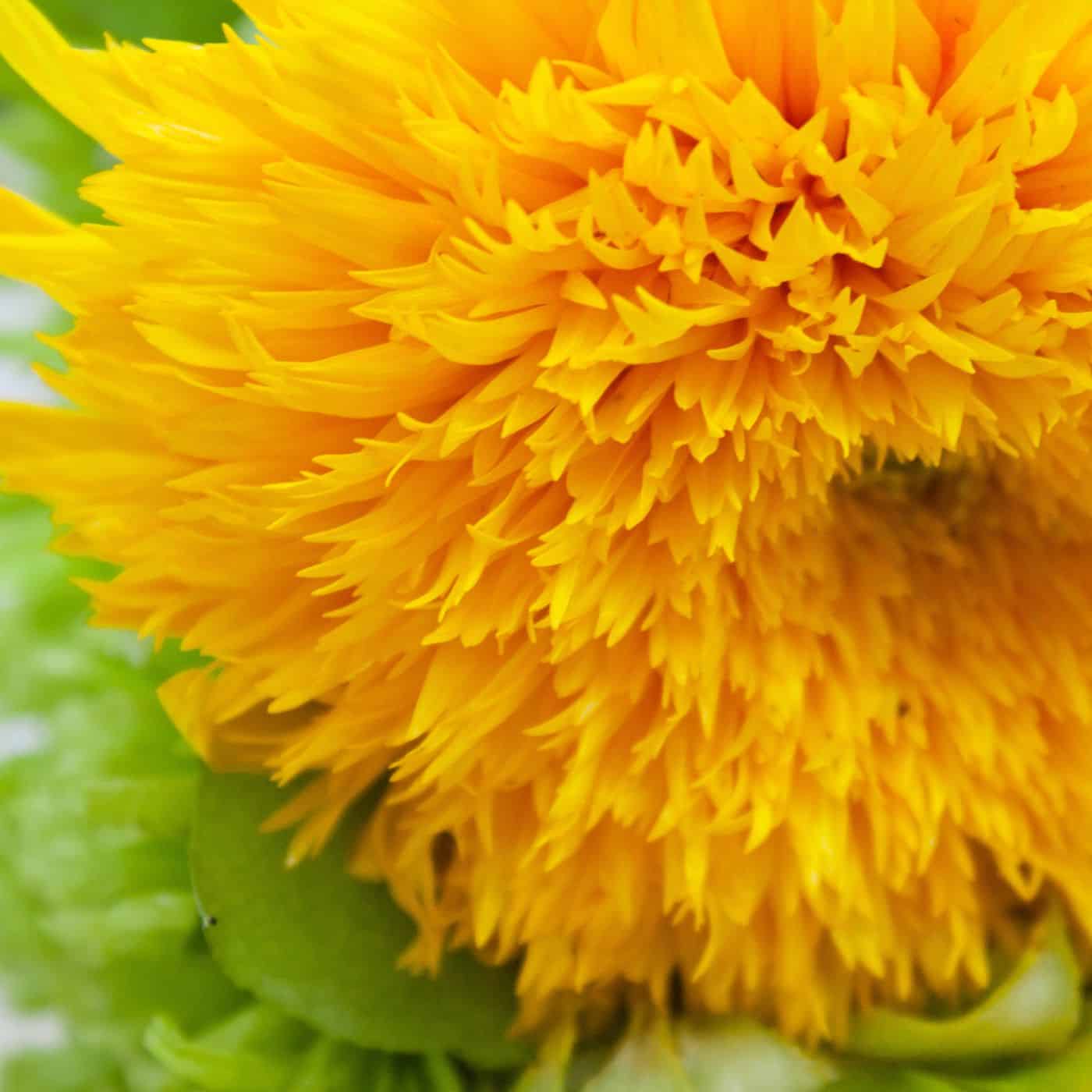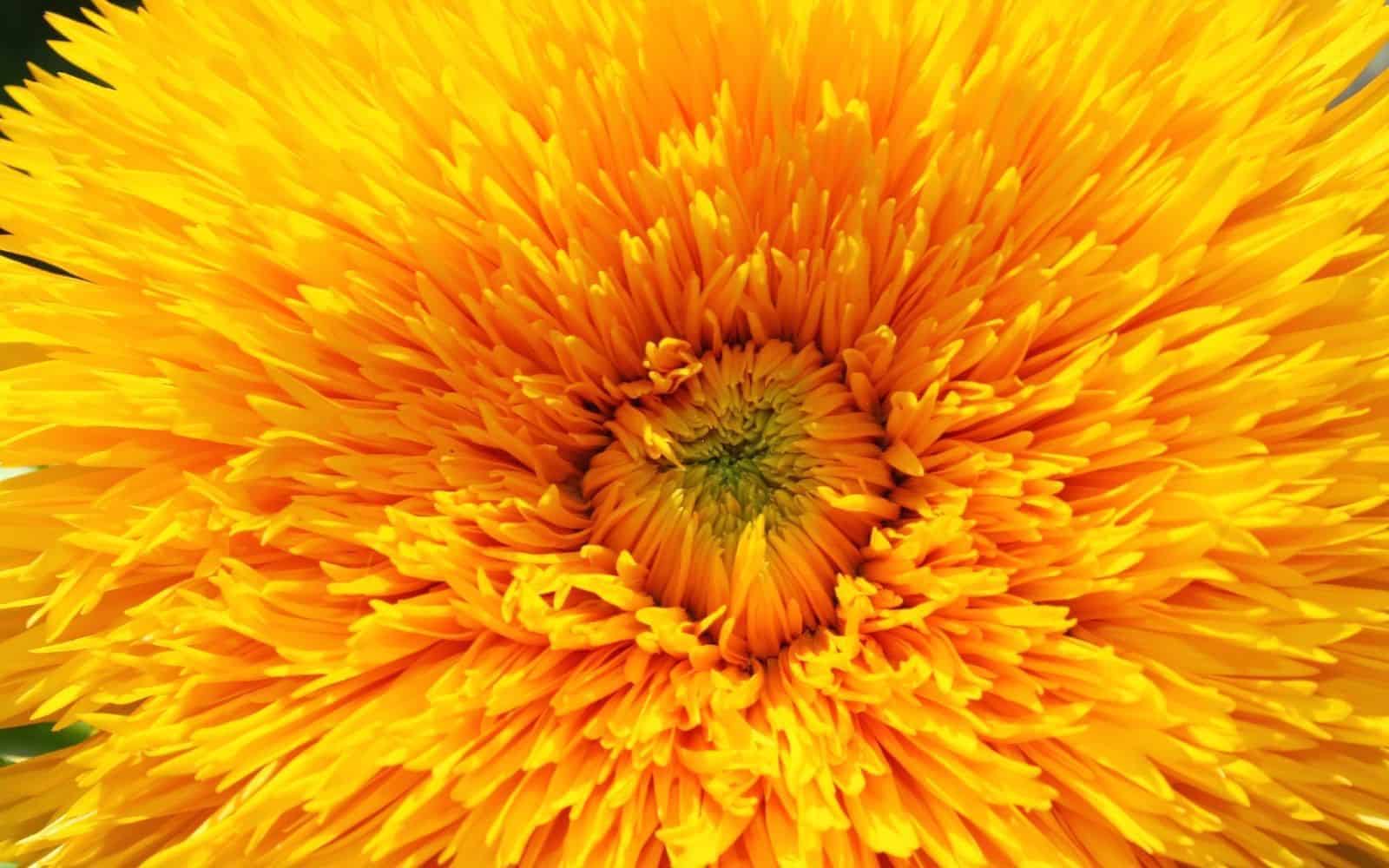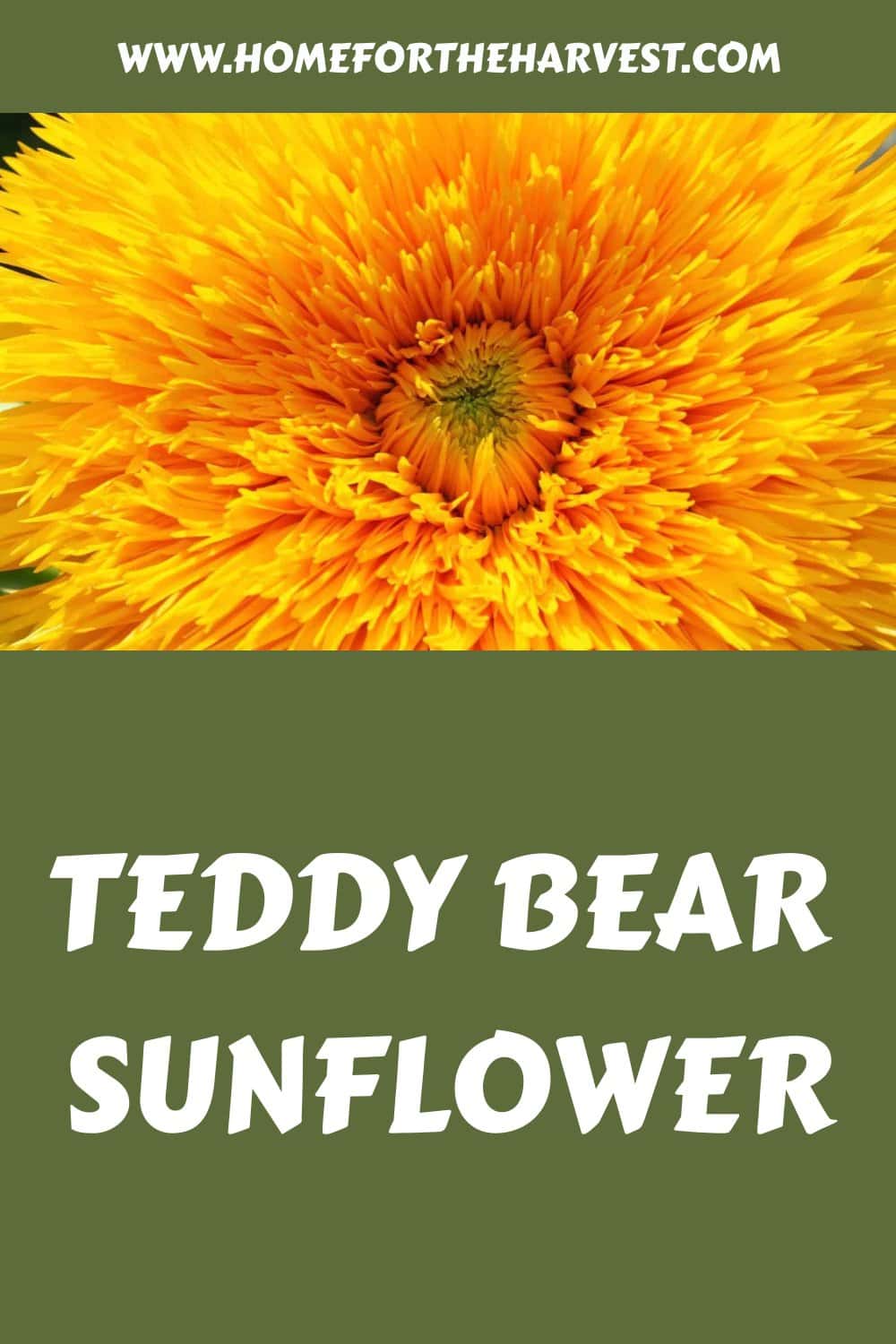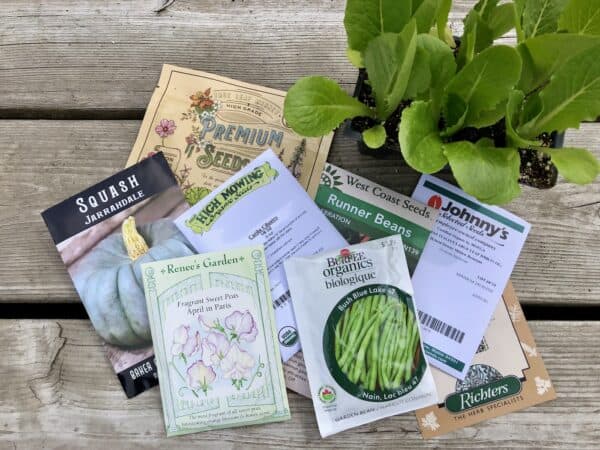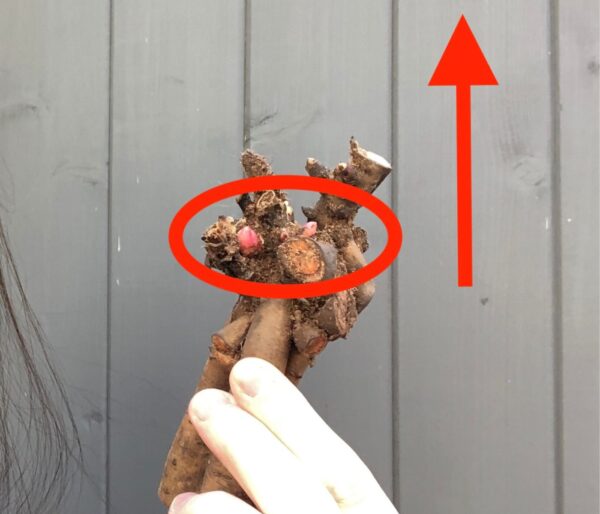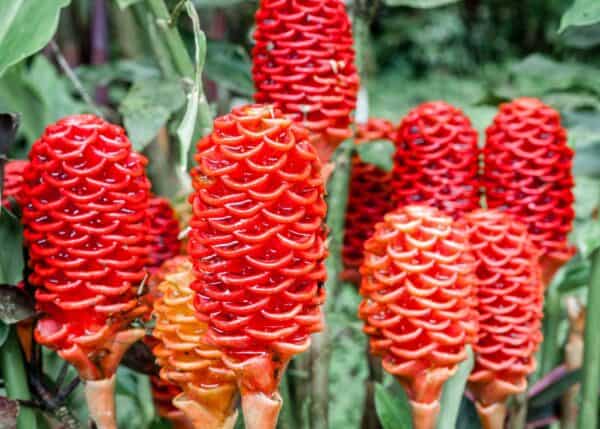Teddy Bear sunflowers are multi-branching “fluffy” sunflowers. They are so fluffy don’t even have a center brown disc floret, and they’re also much shorter than most sunflowers. Some sunflowers can grow to be fourteen feet tall, but Teddy Bear sunflowers are a dwarf variety that grow to be 3-5 feet tall in full sun.
While they don’t make excellent cut flowers, this variety is perfect for kids and for small space gardens and flower beds. Lastly, these open-pollinated heirloom sunflowers attract beneficial pollinators like bees and butterflies.
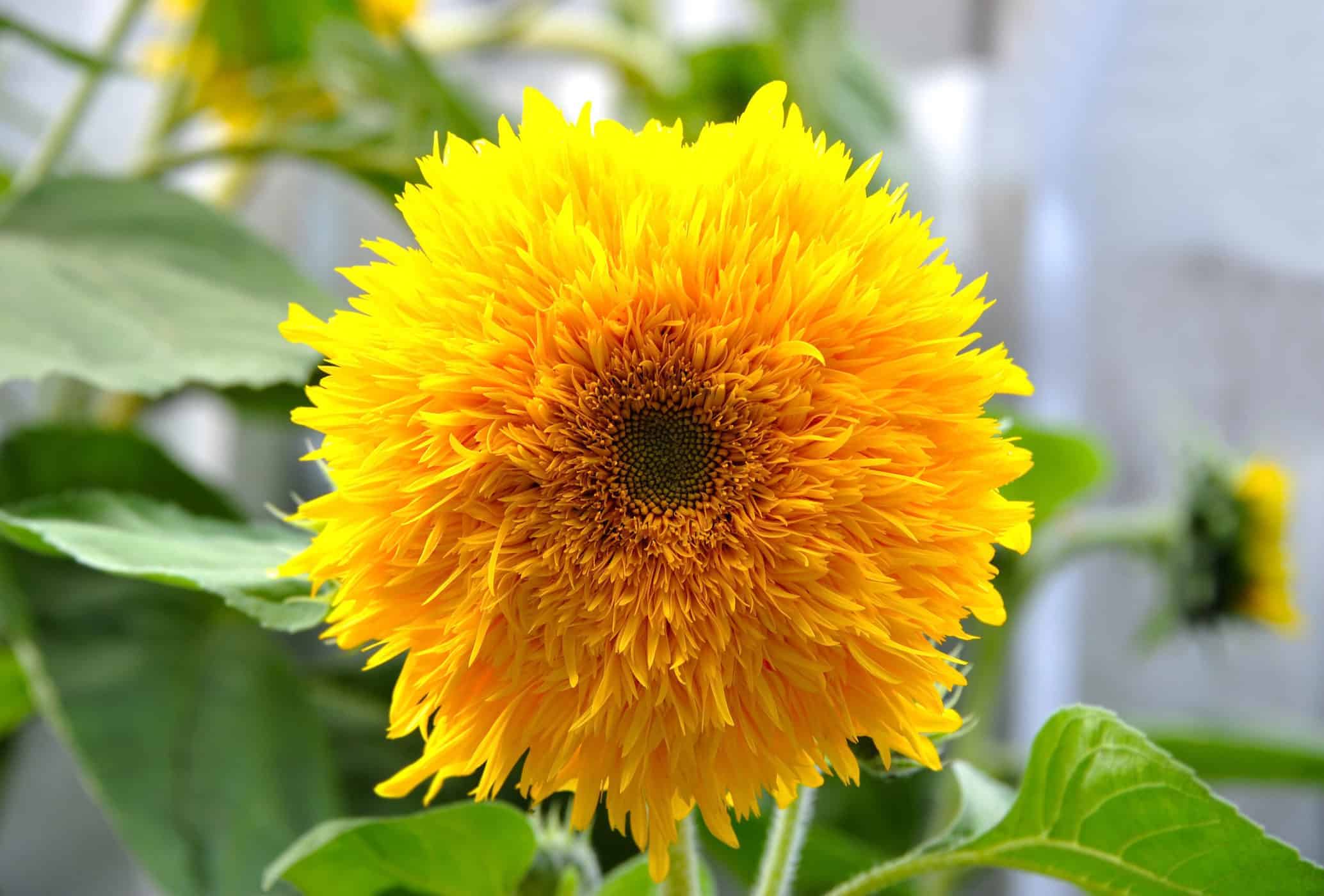
Teddy Bear sunflower basics
The Teddy Bear sunflower is an American heirloom sunflower variety known for its small stature and fluffy, pom-pom-like flowers. These cheery golden-yellow blooms have so many petals that they look like puff balls! And the plants are small enough for children to enjoy. Due to the fluffy nature of the flowers, they don’t make good cut flowers and fall apart in bouquets. And they are quite easy to grow!
Most sunflowers are on the taller side, but not Teddy Bear sunflowers. They’re on the short side – but still pretty tall when compared to other flowers. They can grow to be around four to five feet tall. This variety of sunflowers is also called “dwarf” sunflowers since they can also grow to be around three feet tall, which is still three times taller than other flowers like tulips.
The diameter of these flowers is usually five inches (around twelve centimeters), which is a little over the size of your fist. These flowers are practically perfect–they’re tall, but not too tall, and they’re big without being absolutely enormous.
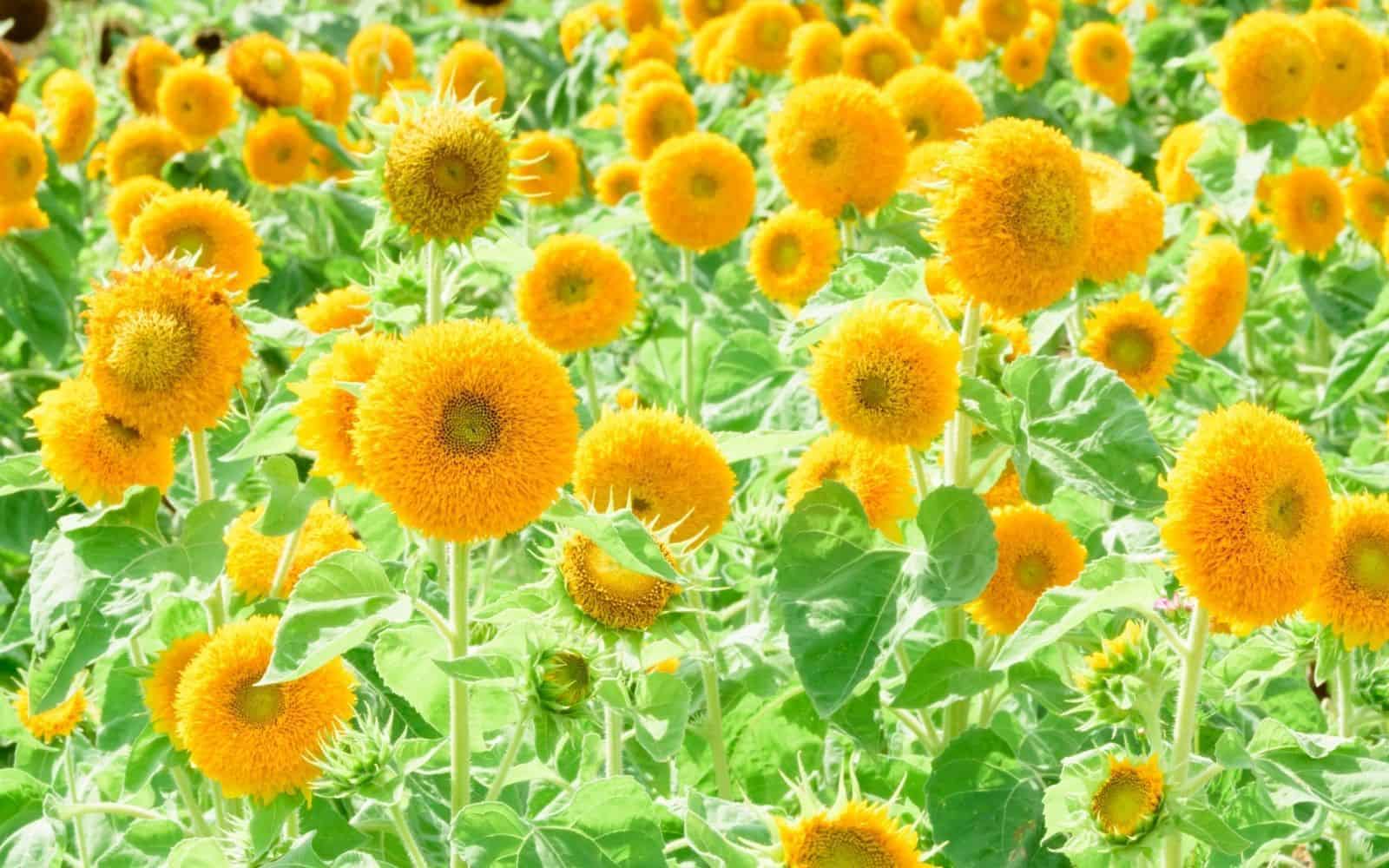
They’re bright yellow and have so many petals that (instead of having a flat shape like your average sunflower), they are almost completely round. All the tiny, soft petals cluster together, making the flower poof out like a big, fluffy teddy bear–hence the name.
The Teddy Bear Sunflower doesn’t just sprout one flower. They’re branching sunflowers, meaning that when one stalk shoots up, it can produce more than one flower. In some cases, they can grow up to five flowers on one stalk. So, if you plan on growing teddy bear sunflowers yourself, expect to have at least three to five little fluffy flowers per stalk.
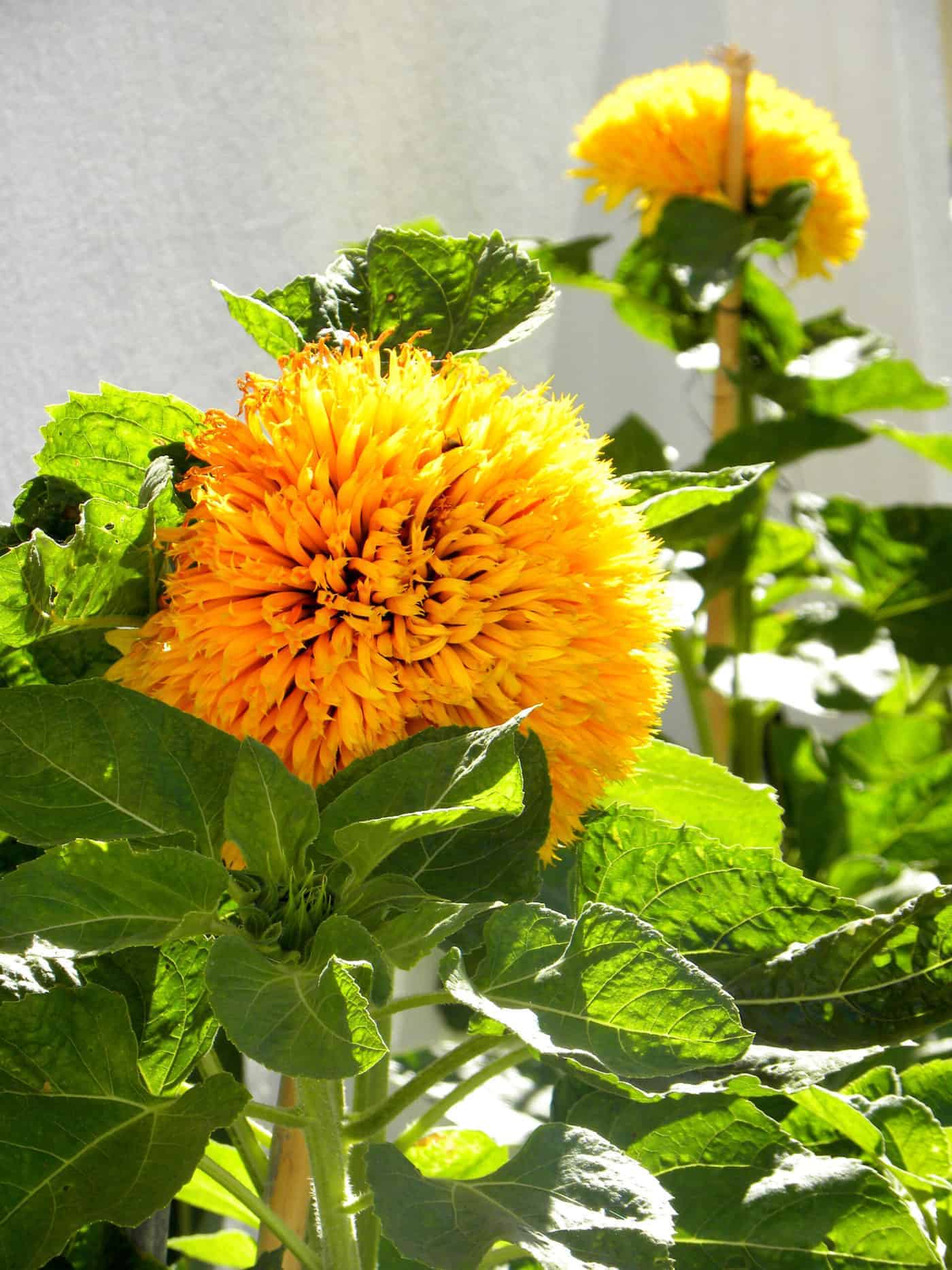
Unfortunately, Teddy Bear sunflowers are not perennials. They don’t come back again next year from their roots. Teddy Bear sunflowers are annual flowers. They bloom for one year, die, and don’t grow back on their own. If you want to keep these around every year, you’ll have to plant more yourself every year. That said, sometimes, a few seeds fall out of the flower heads and sprout all on their own the next spring.
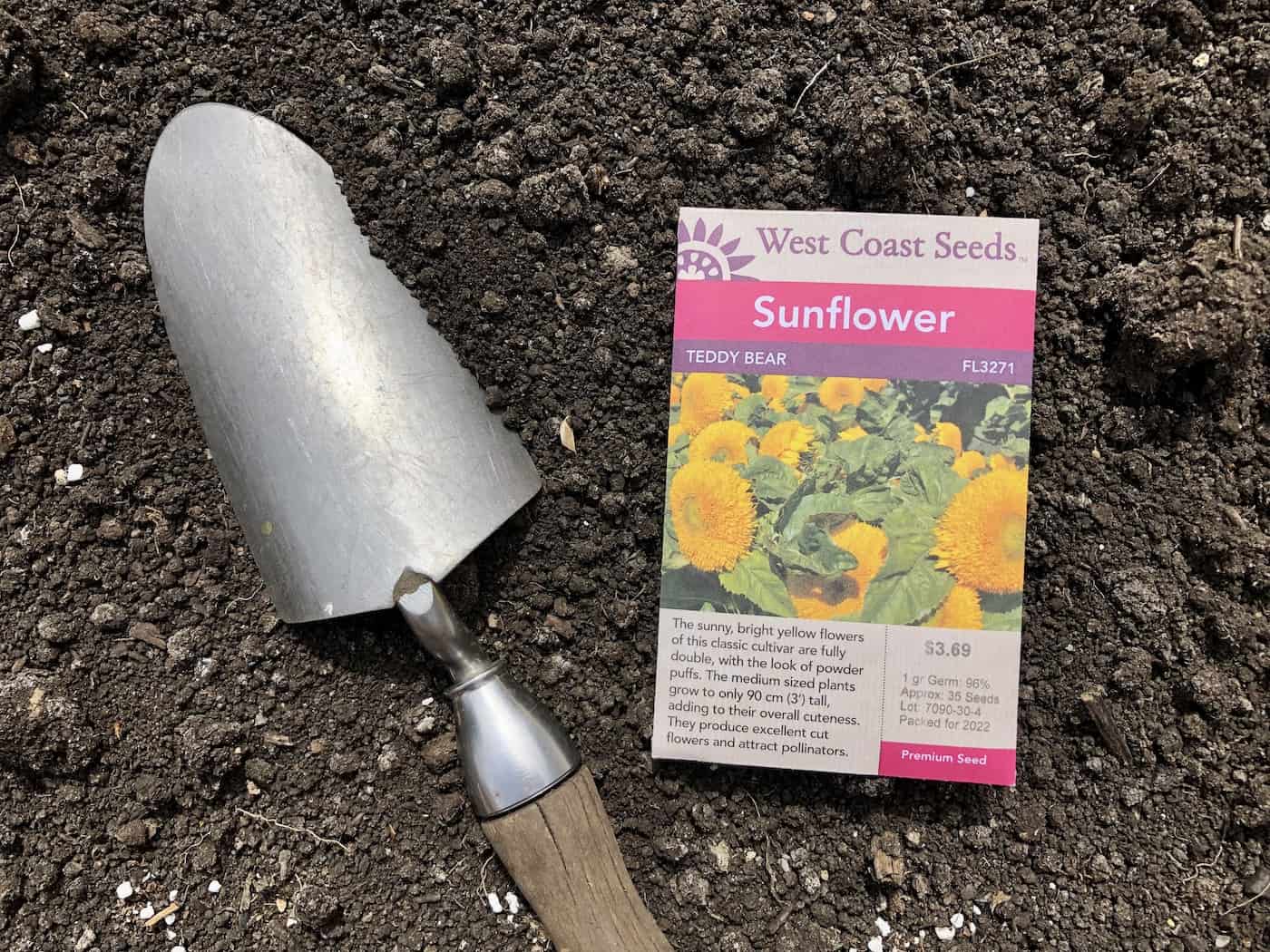
How to plant Teddy Bear sunflowers
Teddy Bear seeds are usually easy to find in garden centers and online. You can buy them year-round, but they typically ship in the winter or early spring, in time for spring planting.
Sunflowers don’t survive colder temperatures, so when you get the seeds, make sure you plant sunflowers after the last frost of the spring. And since you can’t really know exactly when the last frost is, planting them mid-spring is the best way to avoid that issue.
Before you plant the seeds, preparing the soil is a good idea. You can consistently use store-bought fertilizer or compost on the soil with organic matter for a few weeks before planting seeds. If you do this, you won’t have to worry about adding fertilizer to the flowers after sprouting.
You should plant them in mid-spring and make sure to plant more than one sunflower seed in each spot (usually two to four). They also like sunny spots (hence the name sunflower), so plan accordingly. They won’t do nearly as well if planted in the shade.
Each planted seed cluster for one plant should be planted at least eighteen to twenty-four inches apart. If more than one seed sprouts at one spot, you can prune the ones that are smaller or too close to the other plants.
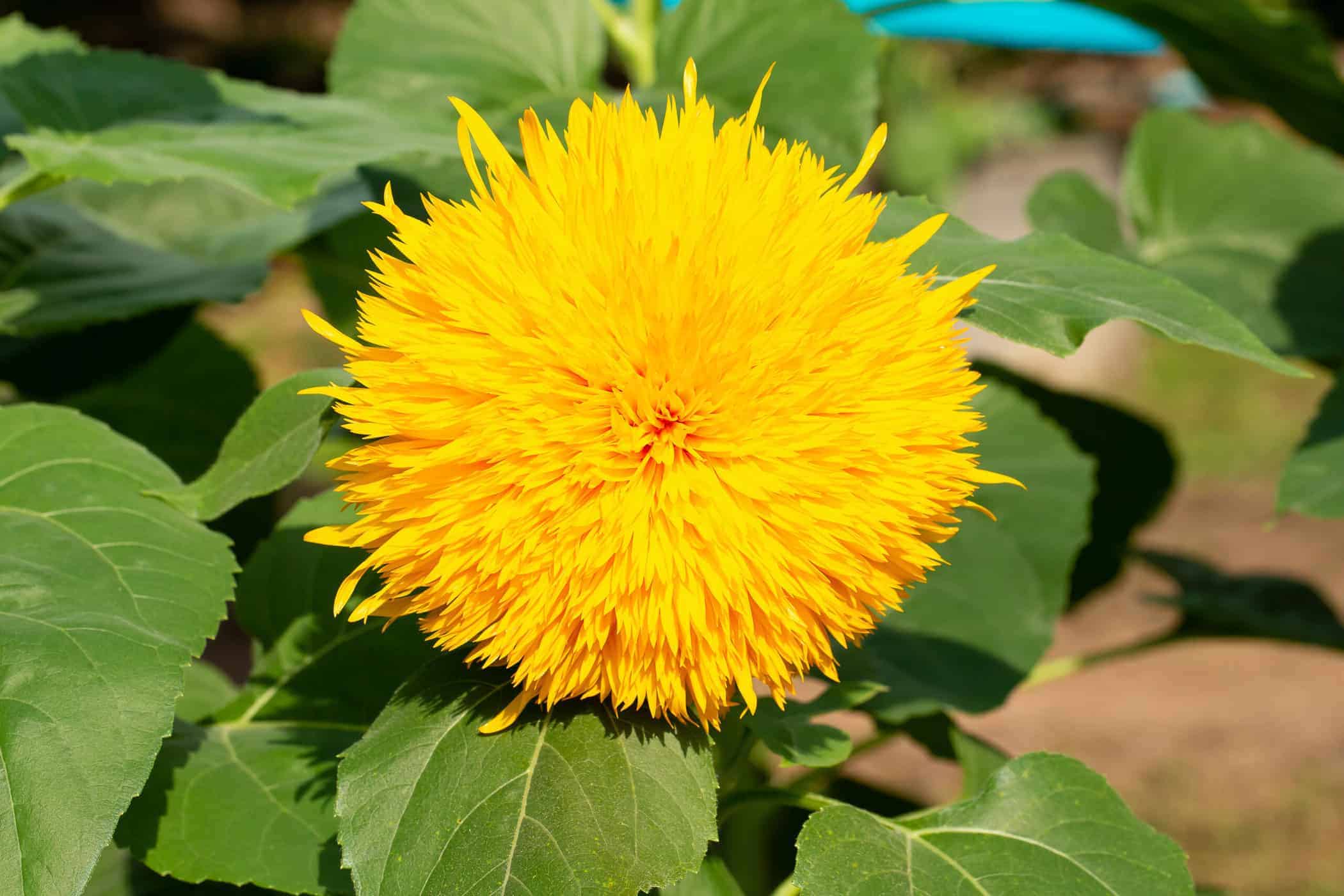
How to grow Teddy Bear sunflower plants
These sunflowers need a lot of water to thrive, especially since they should be planted in direct sunlight. But don’t drench them in water. Try to water them until the soil is nice and moist, but don’t waterlog the soil. Waterlogged soil occurs when there is enough water to fully saturate the dirt, making it look more like a small pond than a damp spot. Sunflowers like Teddy Bear are drought-tolerant but won’t bloom at their best if they don’t have enough water.
These flowers grow fairly quickly as well. They usually flower within eight weeks and sprout (germinate) at seven to fourteen days (usually within a couple of days). In order to keep them happy, water them every week.
They usually don’t need fertilizer, so if they look like they’re growing healthy, then you don’t have to add anything extra to keep them going.
